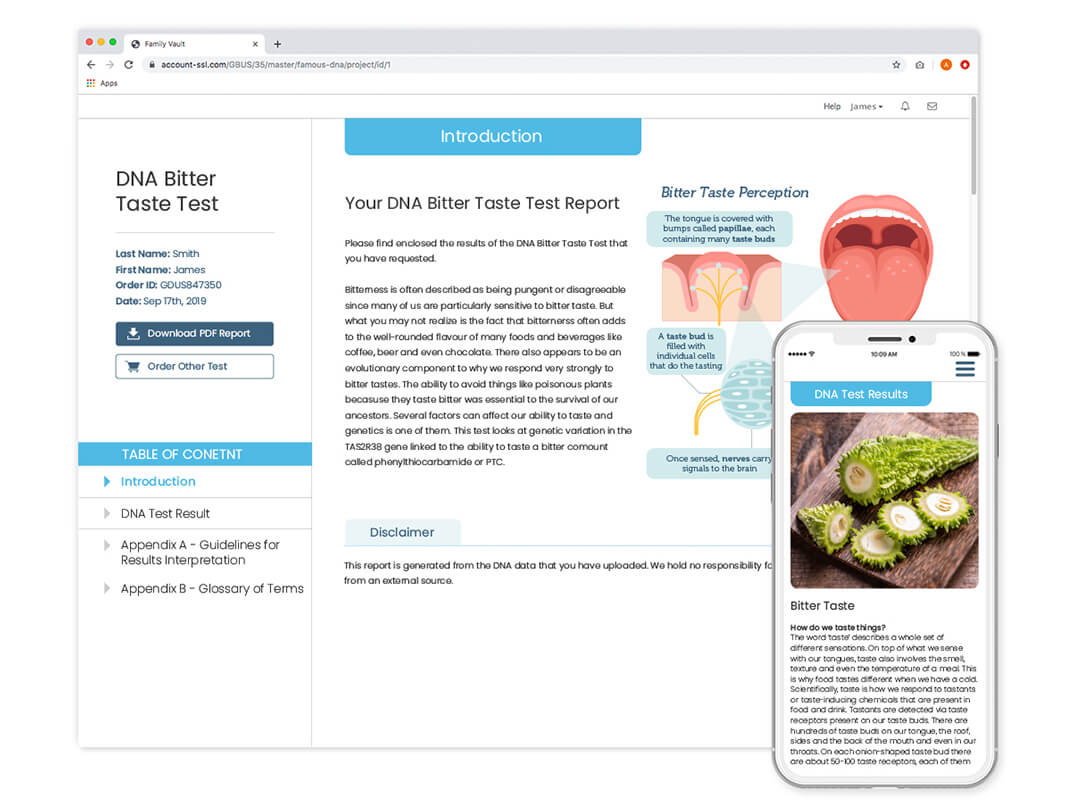Bitter Taste DNA Test
Not many of us like bitter tastes. Are you able to taste the bitterness associated with PTC? Find out with this DNA test.
- Includes the TAS2R38 gene associated with bitter taste
- Individuals with the variant are able to taste phenylthiocarbamide or PTC
- 100% private and confidential online results
Already have DNA markers? Sign in and upload your data to view results.
Need to take the DNA Test? Order our easy-to-use swab kit.





